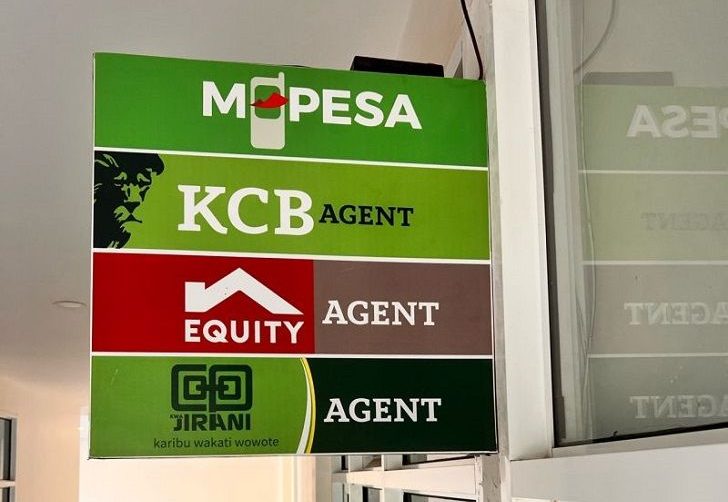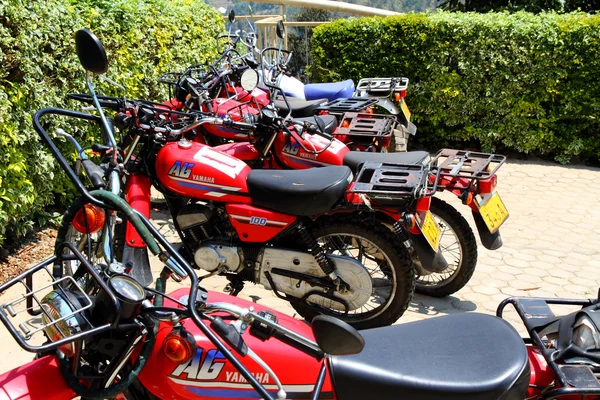Are you wondering if it is a good business idea to invest in mobile banking business? In this blog, we will explore the current profitability of agent banking in Kenya. We’ll analyze the latest data, factors influencing profits, and give you latest insights from experts and agents themselves. Our goal is to give you the ultimate guide on understanding the costs and profits of Mobile agency banking today.
For over 33 million Kenyans, especially those in rural areas, M-Banking agents are their primary access point to financial services and inclusion. In June 2024, there were 334,046 M-banking agents across Kenya. They grew to 367,551 by the end of September 2024. Agents offer a bundle of services such as cash-in/cash-out services (deposits, withdrawals, money transfers, bill payments, and more.), which are essential for users without direct access to banking services.
Below are the key data and facts about Mobile money sector in kenya
- Mobile money transactions in Kenya reached Sh6.5 trillion in the first nine months of 2024
- As of September 2024, there were 367,551 active mobile money agents in Kenya
- Safaricom’s M-Pesa remains the dominant mobile money platform, holding a 93.4% market share as of June 2024
Table of Contents
What makes Mpesa Agent business Profitable?
There are many benefits making Mbanking business very profitable in Sub-Saharan Africa. Belo are the top 5 benefits of establishing an Mpesa shop in Kenya
Low Startup Costs
One of the biggest advantages of starting an M-Banking agent business such as M-Pesa is the relatively low startup costs. To become an agent, you need to have a valid business permit, a mobile phone, and a float (the amount of cash you keep on hand to facilitate transactions). The amount of float required varies depending on the expected transaction volume, but even a small float of around KES 20,000 (about $200) can be sufficient to get started.
Steady Revenue Stream
M-Banking agents such as M-pesa owners earn a commission on every transaction they process. The commission rates vary depending on the type of transaction, but they typically range from 0.5% to 2% of the transaction amount. While the commission per transaction may seem small, the high volume of transactions can quickly add up.
Increased Foot Traffic
Having a mobile banking business can drive foot traffic to your business such as a shop, kibanda or hardware. Many customers who come to make Mpesa or airtel money transactions may also purchase other goods or services from the agent’s business. This can lead to increased profits for the agent’s primary business.
Minimal Operating Costs
M-Banking agent businesses have relatively low operating costs compared to traditional financial institutions. Agents do not need to maintain a physical branch, hire a large staff, or invest in expensive infrastructure. The only significant costs are the rent for the business premises and the cost of maintaining a sufficient float.
Scalability
As your agency banking business grows, it can scale up its operations by increasing its float and expanding to multiple locations. This allows agents to handle larger transaction volumes and earn higher commissions. Some successful agents have even opened multiple branches, creating a mini-franchise model.
Where is the best place to locate my Mpesa shop?
Below is a list of the best places to locate your Mobile banking agent shop or business in Kenya. According to many agents, high flow or traffic of people to your shop means more profits. This makes busy locations such as near markets, schools or government offices very lucrative. The table below has a comprehensive list of the best places to set up your business
| Location | Justification |
|---|---|
| Near Markets | Many people visit markets regularly to buy daily essentials. Setting up an M-Pesa shop near a market like Gikomba, Githurai or Wakulima market can serve both the shoppers and traders and provide them with a convenient way to manage their finances. |
| Near Learning institutions | Schools, colleges and universities are hubs of activity, especially during school hours. Setting up an M-Pesa shop near a school can help students and teachers access financial services easily. |
| Near Shopping Centers and Malls | Shopping centers are popular destinations for people to buy goods and services in rural areas. Setting up an M-Pesa shop in a shopping center such as Mulot can help customers make transactions and manage their finances while shopping. |
| Near Public Bus stops or stages | Public transportation hubs like Khoja bus station, Railways train stations, and airports are busy places where people often need to access financial services. Setting up an M-Pesa shop near these hubs can help cater to these customers. |
| Near Government Offices | Government offices are often busy places where people need to access cash for official purposes. Set up an M-Pesa shop near a Judiciary Law court, police stations and county government offices or Huduma centres. |
| Near Healthcare Facilities and Pharmacies | Healthcare facilities are essential for people’s treatment. Locate your M-Pesa shop near private and public hospitals such as near Kenyatta National Hospital, Nairobi Hospital or K.U Referral hospital to help patients and healthcare workers access financial services easily. |
| Near Food Joints | Food Joints such as Kamakis and By-pass Nyama Choma joints are a popular destination for people to grab a bite to eat. An MPesa shop near one can help patrons make transactions and manage their finances while dining. |
| Near Supermarkets | Supermarkets are a popular destinations for people to buy daily essentials. Setting up an M-Pesa shop near a convenience store can help customers access financial services while shopping for daily needs. |
Agent banking market in Kenya
Market share by subscribers
There are over 20 Mobile banking services in Kenya. Some are run by commercial banks, Saccos or telco companies. If you are wondering which services to offer in your agency shop, MPesa is the best mobile banking service in Kenya, with a significant market share of about 75.1% of all subscribers. Airtel Money is the second most popular, followed by Telkom Mobile Money. Equity Mobile Banking and KCB Mobile Banking have smaller market shares.
| Mobile Banking Service | Number of Subscribers | Penetration Rate |
| Safaricom (M-Pesa) | 38,000,000 | 75.1% |
| Airtel Money | 19,387,460 | 38.5% |
| Telkom (TKash) | 1,343,276 | 2.7% |
| Equity Bank (Eazzy Banking) | 1,000,000 | 2.0% |
| KCB Mobile Banking | 500,000 | 1.0% |
Market share by Agents
1. Equity Bank – Eazzy Banking
Equity Bank captures the largest share of banking agents in Kenya with 28,663 agents representing (47%), making it the leader in agent banking. The platform offers comprehensive services including deposits, withdrawals, fund transfers, and loan access through its extensive agent network.
2. KCB Bank – KCB Mobile & Agent Network
KCB operates a wide network of over 16,000 agents enabling them to deliver banking services close to customers in their neighborhoods. KCB holds 23.6% of the banking agent market with 14,466 agents.
3. Co-op Bank – MCo-op Cash
Co-op Bank operates 11,207 agents, holding 18.3% of the banking agent market. The platform integrates well with SACCOs (Savings and Credit Cooperative Societies) and offers strong rural presence.
4. Barclays Bank Mobile App
Serves both personal and business clients with mobile transactions, bill payments, and fund transfers through their mobile platform.
5. Family Bank – PesaPap
Enables transactions via mobile app or USSD code (*325#), offering cash deposits, withdrawals, bill payments, and airtime purchases.
6. Absa Kenya – Timiza App
Offers quick account opening and digital banking solutions with a focus on instant loans and insurance services.
7. NCBA Bank – NCBA Loop
Features rapid account opening (under 4 minutes) and flexible payment options to mobile money, banks, and merchants.
8. Other Notable Platforms
- UBA Kenya – U-Mobile banking with USSD access (3681#)
- Ecobank Kenya – Ecobank Mobile Banking with instant money transfer
- Stanbic Bank – Premium digital banking services
- NIC Bank – NIC NOW App with essential banking service
How to Run Mobile banking Agent business Successfully
By understanding these key aspects of an M-Banking agency business, you can make informed decisions and increase your chances of success in this rapidly growing sector.
- Commission Structure: You earn a commission on every transaction you process. The commission rates vary depending on the type of transaction but typically range from 0.5% to 2% of the transaction amount. It’s important to understand the commission structure and how it can impact your revenue.
- Liquidity Management: Maintaining sufficient liquidity (float) is crucial for your M-Pesa business. You need to have enough cash on hand to meet customer demand for withdrawals and other transactions. Proper liquidity management is essential to avoid running out of cash or tying up too much capital.
- Compliance and Regulations: As an M-Pesa agent, you must comply with various regulations and guidelines set by the Central Bank of Kenya and the mobile money providers. This includes adhering to know-your-customer (KYC) requirements, anti-money laundering (AML) policies, and other operational guidelines. Failure to comply can result in penalties or even the termination of your agent agreement.
- Branding and Marketing: To attract customers and build a successful M-Pesa agency, it’s important to have a strong brand presence and engage in effective marketing strategies. Display the mobile money provider’s branding prominently, offer promotions or discounts, and engage with the local community.
- Diversification: While M-Pesa can be a lucrative business, consider diversifying your revenue streams. Offer other financial services such as insurance, savings, or credit products to reduce your reliance on M-Pesa commissions and create a more sustainable business model.
- Technological Considerations: Your M-Pesa business relies on technology to process transactions and manage operations. Ensure you have reliable internet connectivity, a stable power supply, and well-maintained point-of-sale devices to minimize downtime and provide a smooth customer experience.
- Customer Service: Providing excellent customer service is crucial for your M-Pesa business. Train your staff to be friendly, knowledgeable, and responsive to customer inquiries and concerns. Ensure that transactions are processed quickly and accurately, and that customers receive clear receipts and SMS alerts for their transactions.
By following these tips, you can create a profitable and sustainable Mobile Banking agency shop that provides excellent services to your customers and contributes to the growth of the financial sector in Kenya.
In conclusion
However, it’s important to note that being an Mobile money agent also comes with some risks and challenges. Agents need to maintain a sufficient float to meet customer demand, which can tie up a significant amount of capital. There is also the risk of fraud and theft, which agents need to mitigate through proper security measures.
Despite these challenges, agency banking businesses have proven to be a lucrative opportunity for entrepreneurs in Kenya. By leveraging the growing demand for mobile financial services and the low startup costs, agents can build a profitable and scalable business. As mobile Banking continues to expand its services and customer base, the potential for agent businesses to thrive will only increase.




Thanks for this educative information. I am happy and planning to start the agency business, am sure the information will help me.